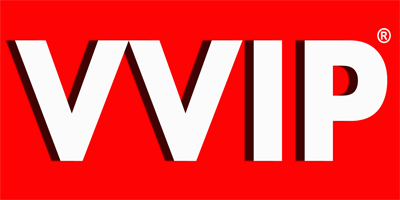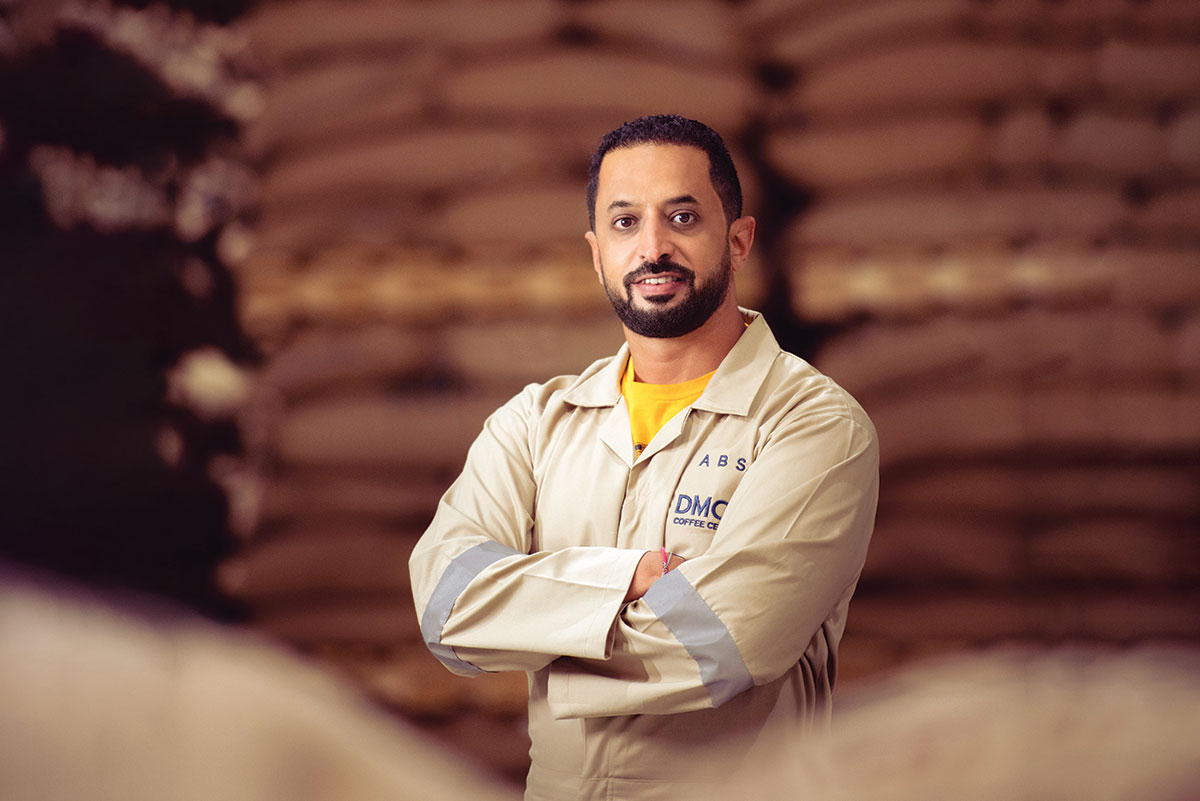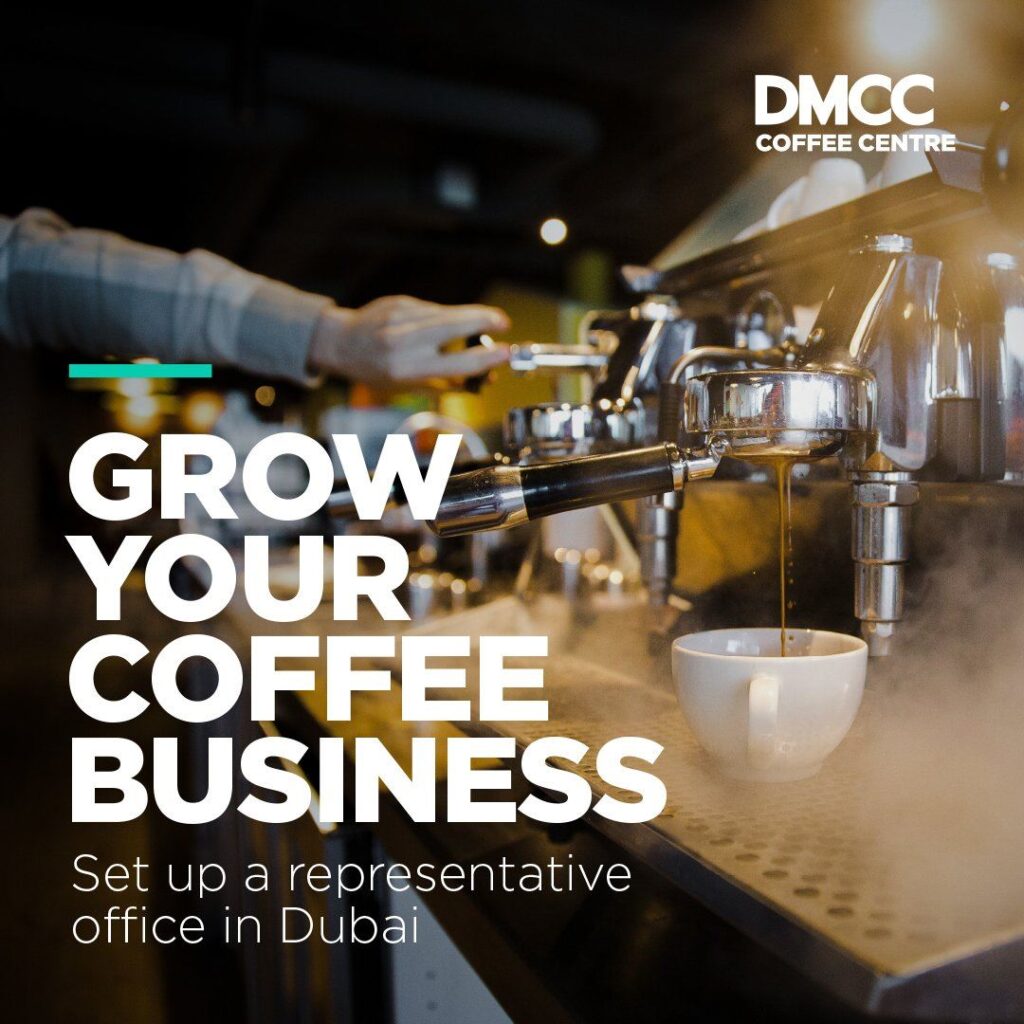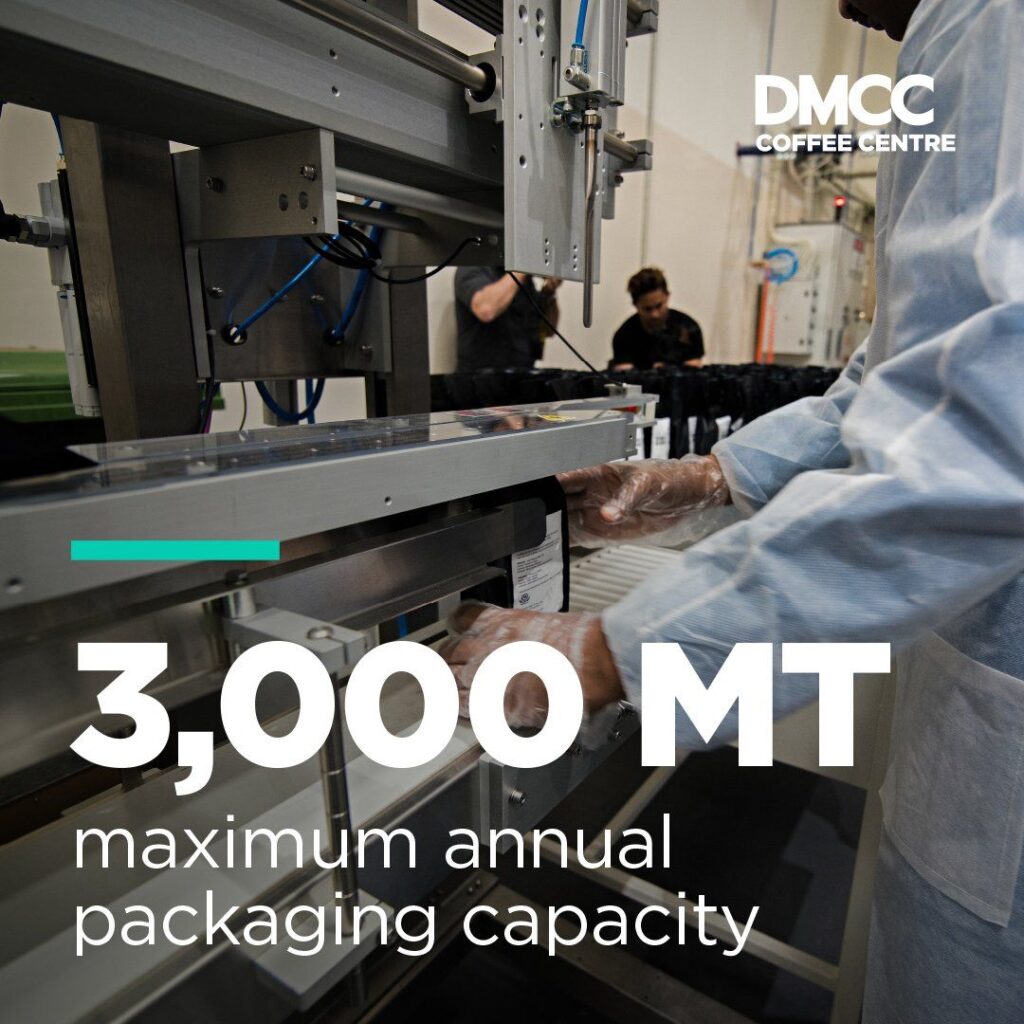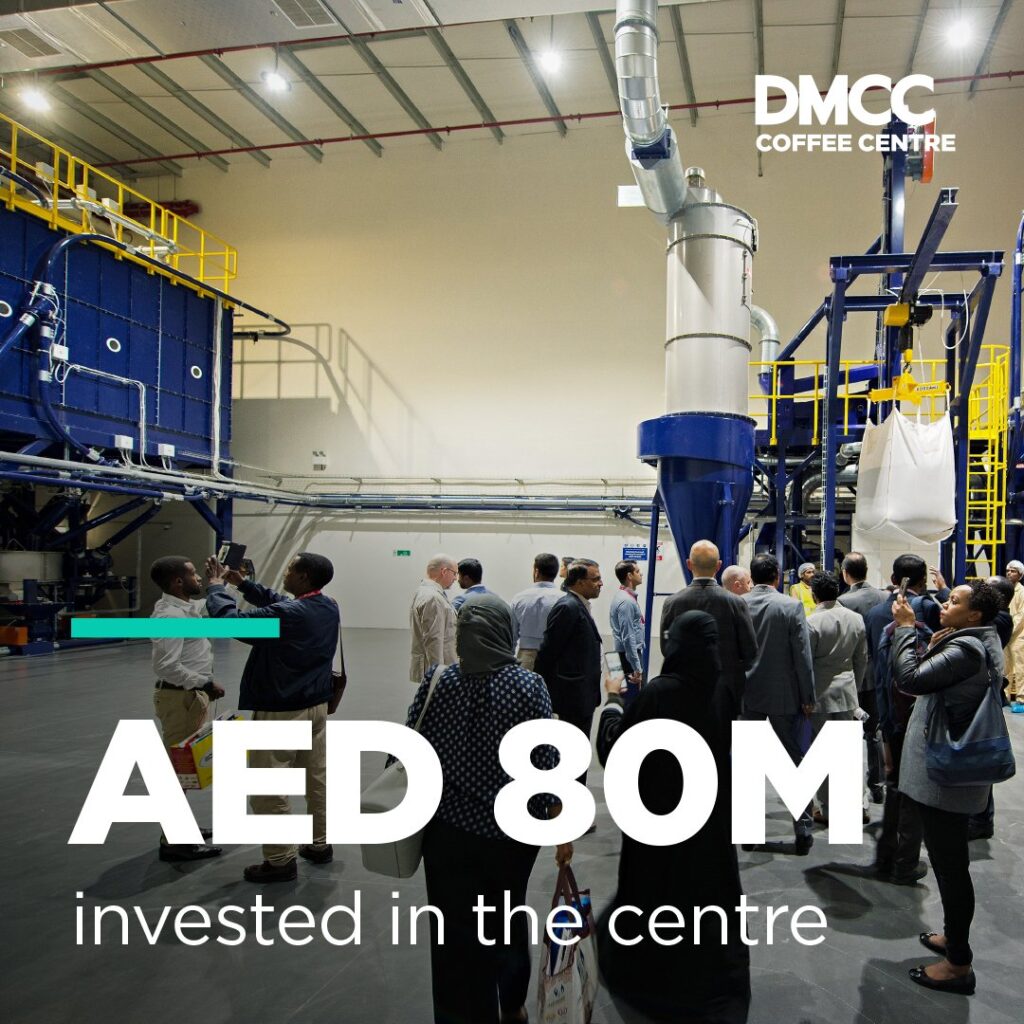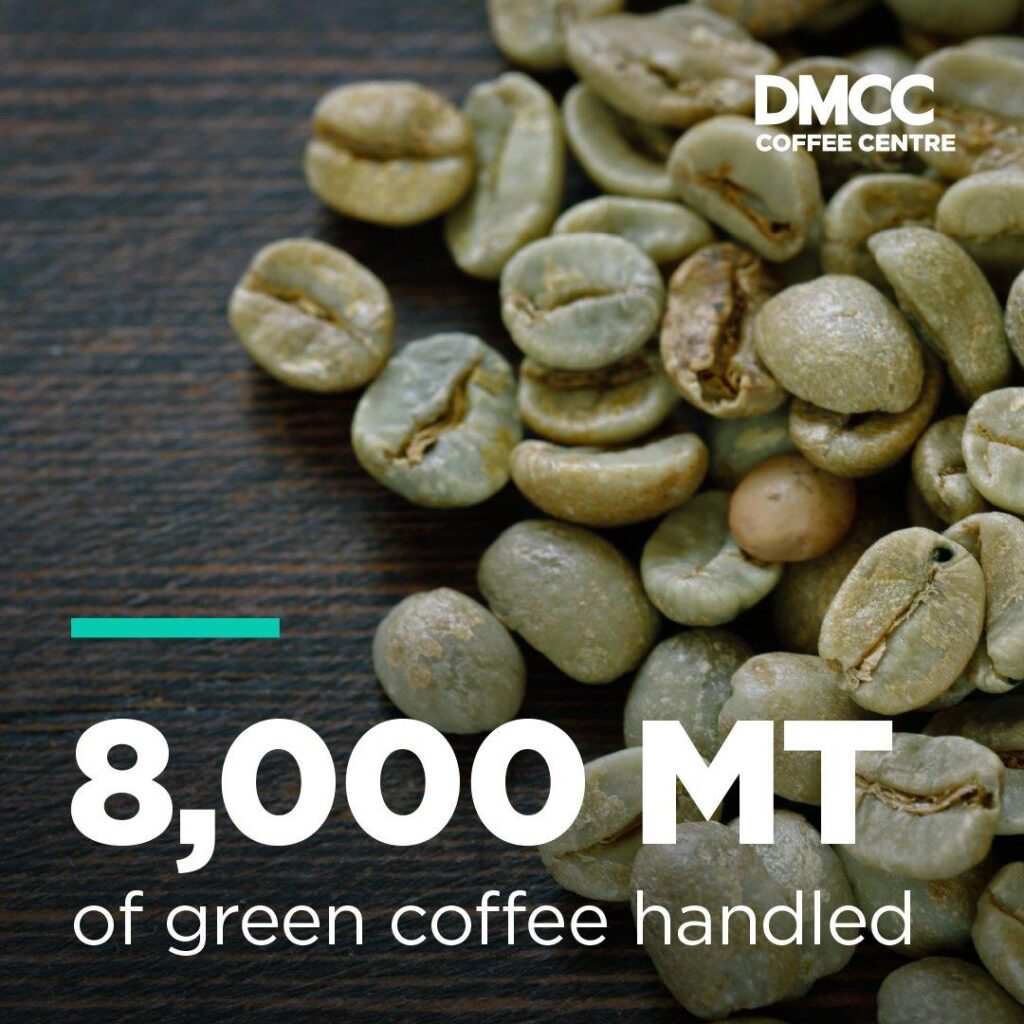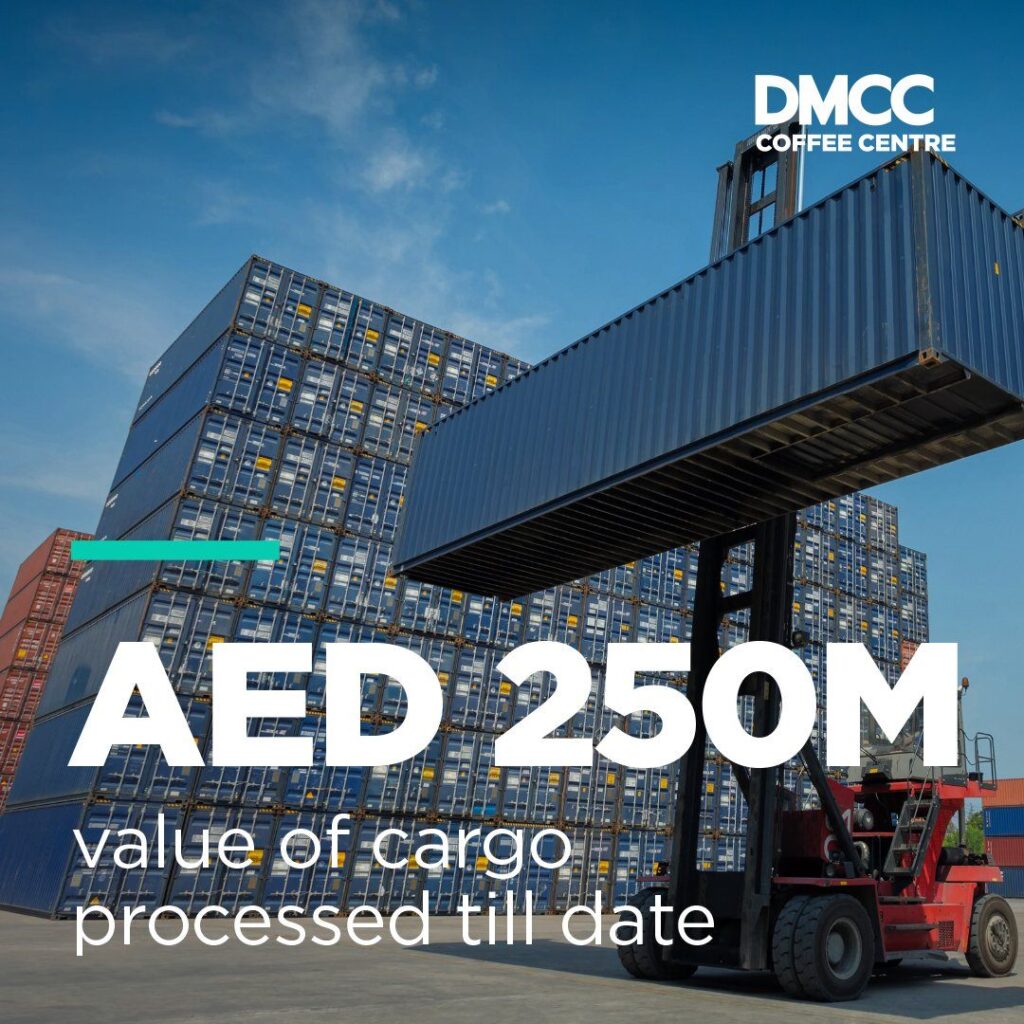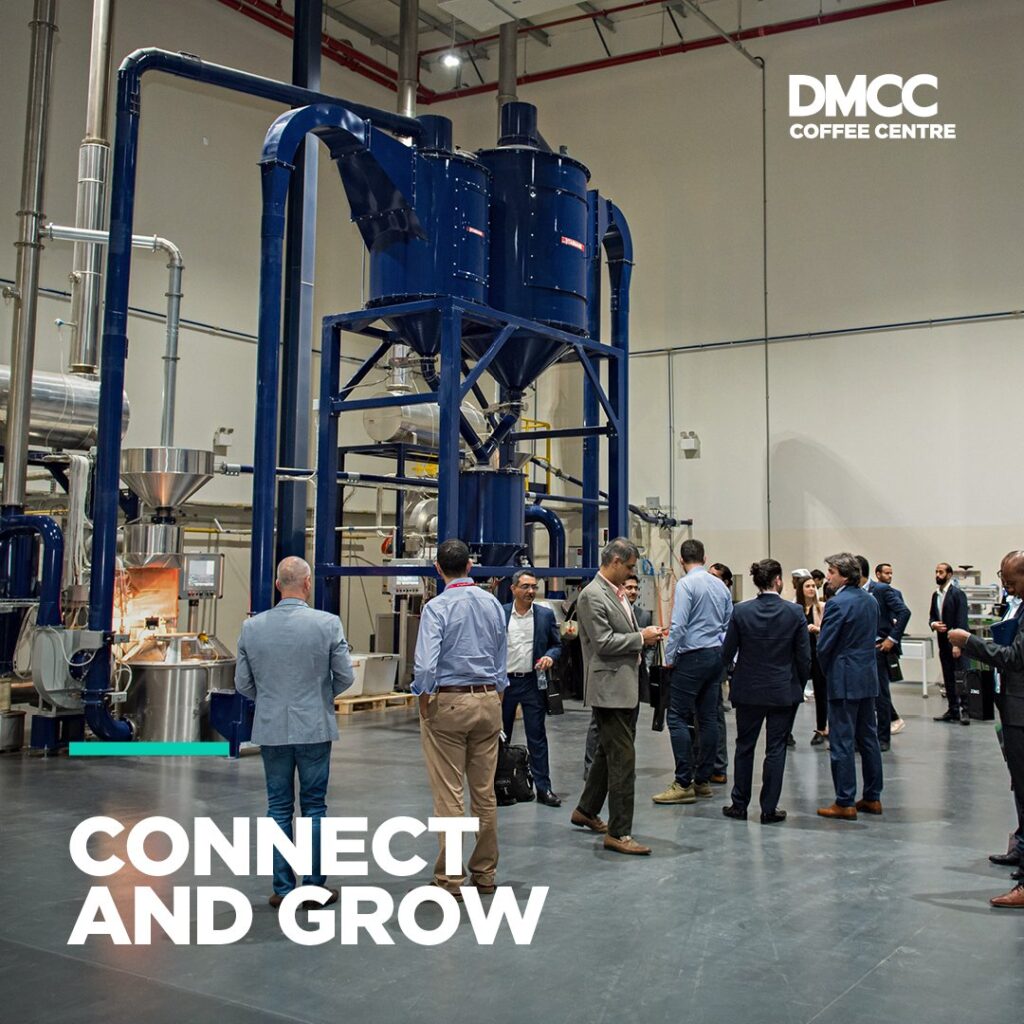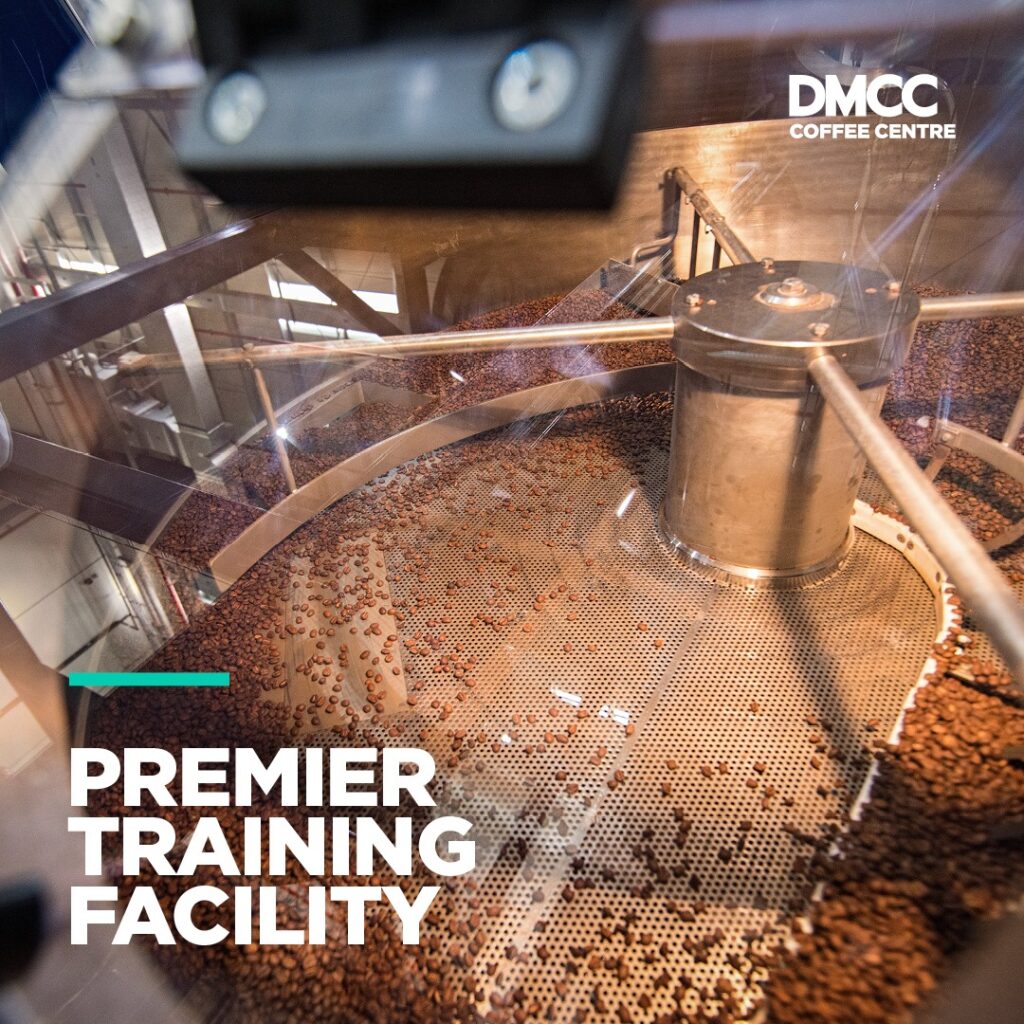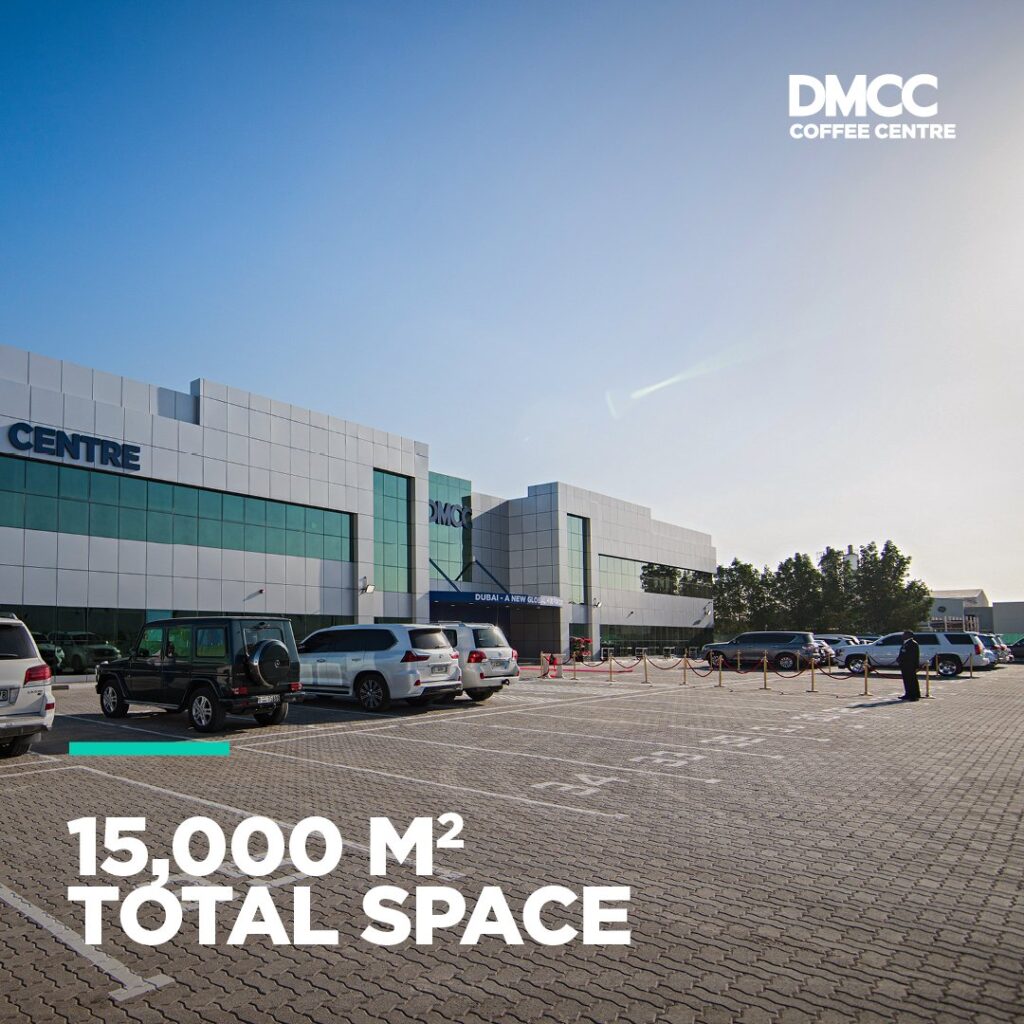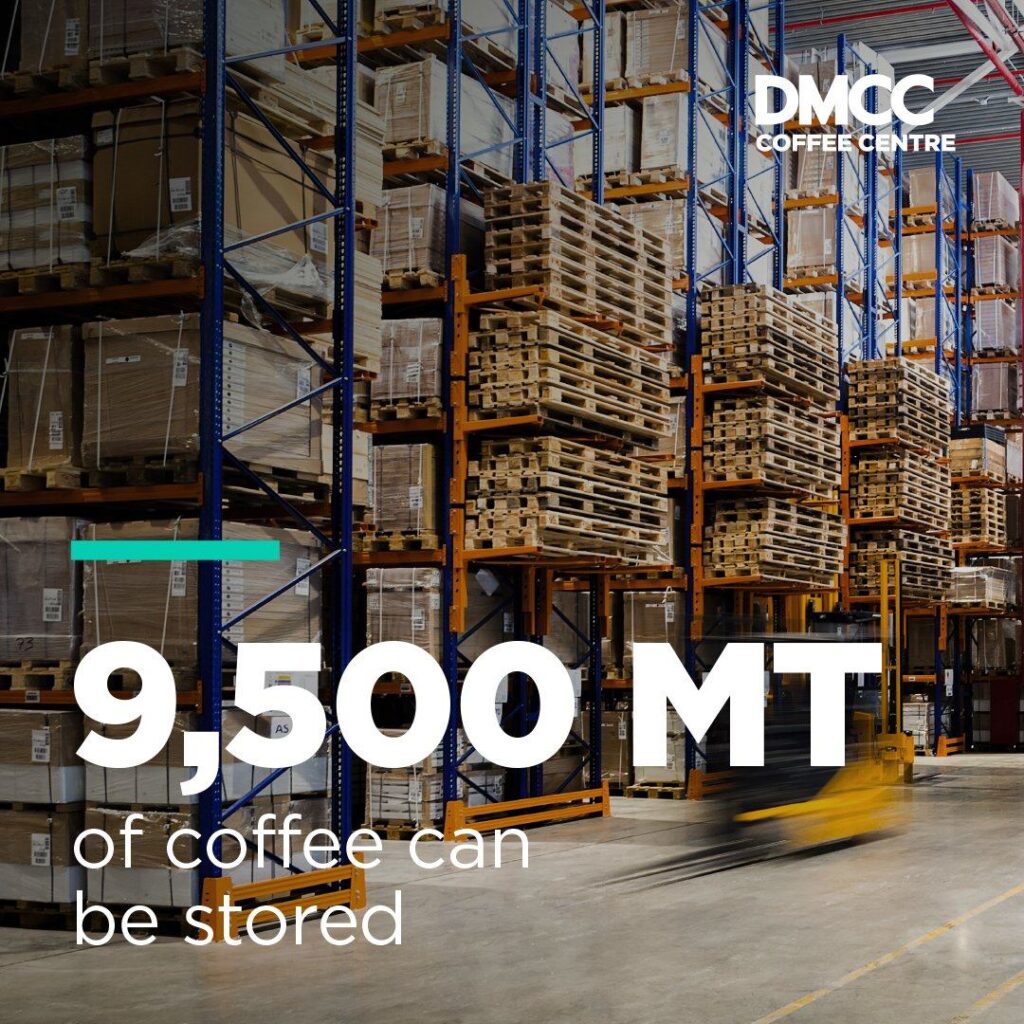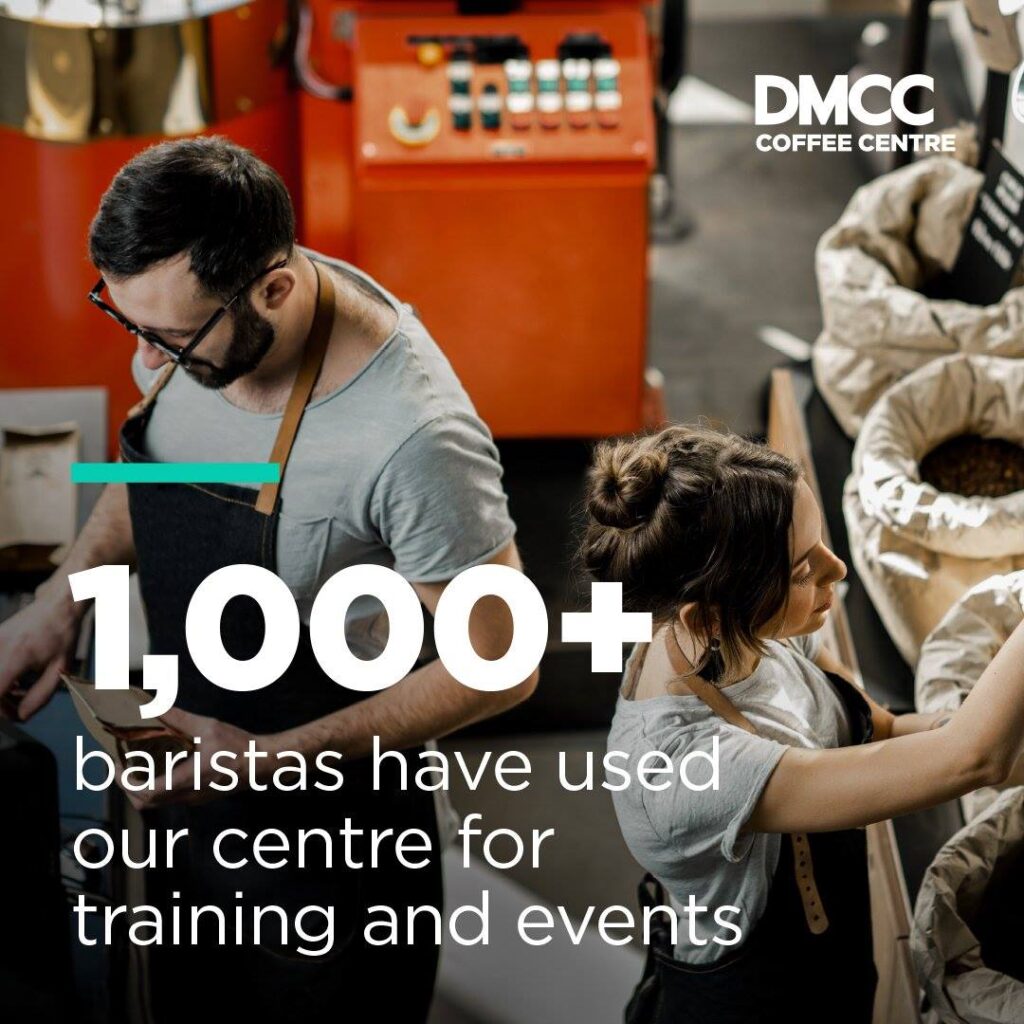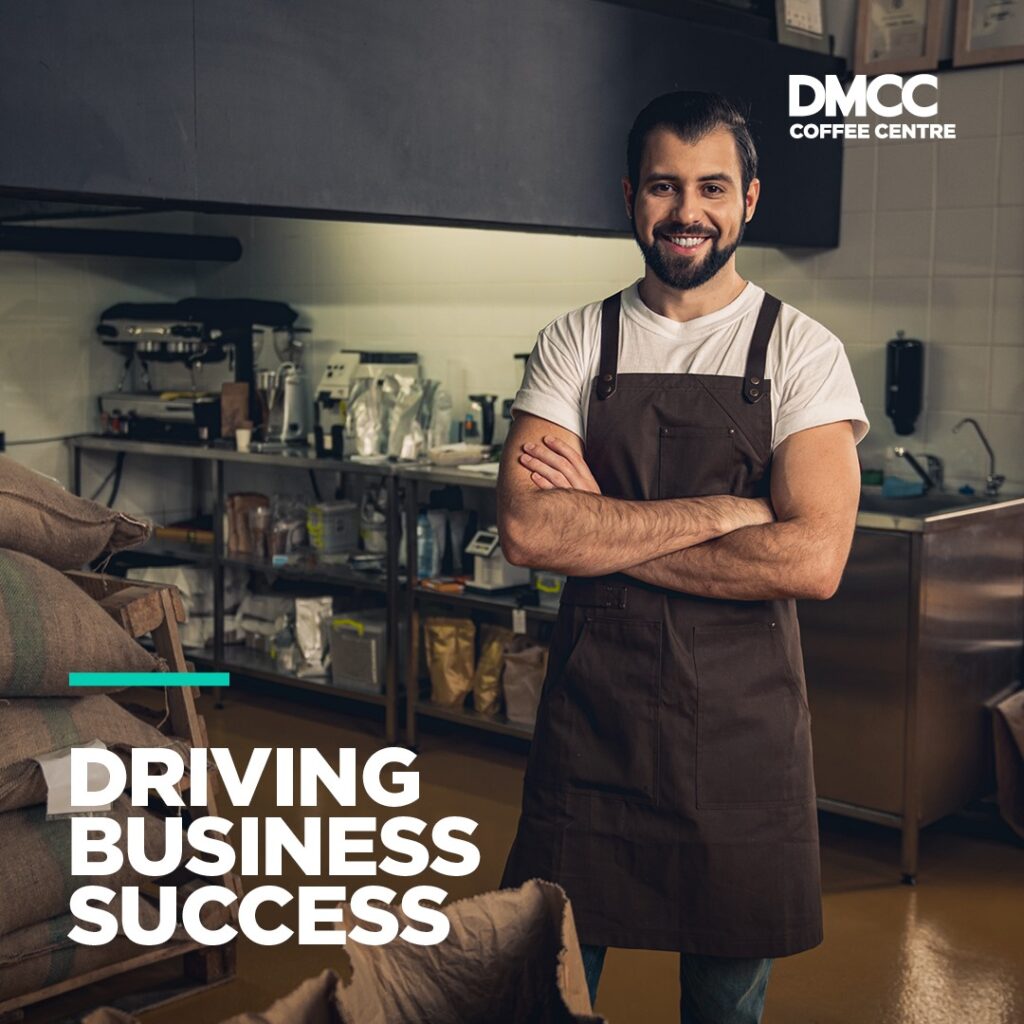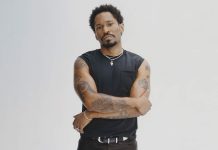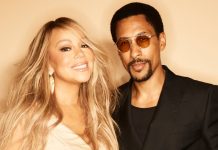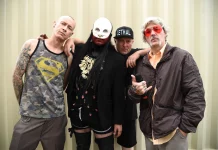DMCC Executive Chairman and Chief Executive Officer Ahmed Bin Sulayem on why the world’s fastest growing free zone is helping transform Dubai into a global hub for coffee trade.
When Ahmed Bin Sulayem, Executive Chairman and Chief Executive Officer of the Dubai Multi Commodities Centre DMCC, spoke to his consultants at an international management consultancy about investing in coffee, they advised him against it. They recommended other commodities such as meat and cocoa based on their algorithm for market growth, but Bin Sulayem stuck to his intuition.
“There was no guarantee that our investment in coffee would be a success, but I saw its potential,” Bin Sulayem tells Global Coffee Report. “Back in 2016, I saw the emergence of specialty coffee and the uptake of single origins, cold drip, and ‘bulletproof’ coffee around the world. It was not the Turkish coffee I was associated with as a kid, like most Arabs do. This was a movement about quality coffee.”
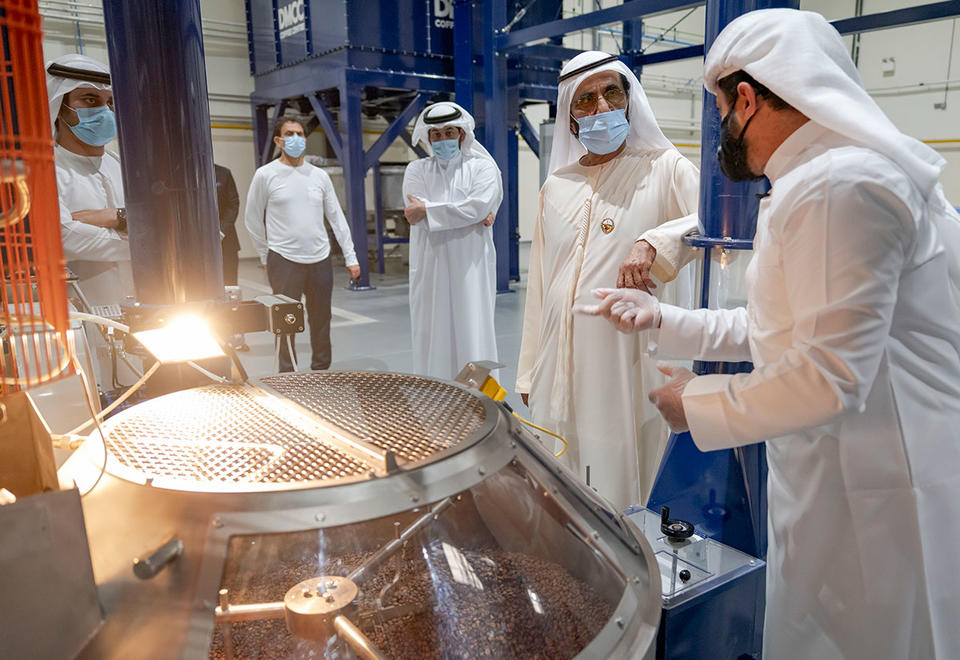
Bin Sulayem was convinced that by the time he helped establish a coffee centre in Jebel Ali, United Arab Emirates, demand for such quality would peak, allowing the company to capitalise on market growth.
His final motive is one of selfish reasons, Bin Sulayem affirms. “In the Gulf, every house has one or two people who believe they are coffee experts. Imagine if I could get our coffee into their hands and have them talking about a product from our coffee centre. Our work in the oil industry and diamond market is not something the local community connects with, but they would with coffee,” he says.
In February 2019, DMCC, a Dubai Government authority and the world’s fastest-growing Free Zone launched the DMCC Coffee Centre at Jebel Ali. The facility is the first-of-its-kind in the Middle East, with the view to transform Dubai into a new global hub for coffee trade.
In July 2020, DMCC announced plans to expand its state-of-the-art centre with the intention to position Dubai at the heart of the world’s leading coffee supply chains. The expansion aims to increase services, boost capacity, and triple output from the current 20,000 tonnes of green beans. The 15,000-square-metre facility offers a raft of customised services for the storage and roasting of green coffee, as well as packaging and delivery, complete with a La Marzocco-equipped training centre.
The expansion means DMCC can introduce equipment to cater to the needs of local culture, including the blending of coffee and cardamom, a traditional Arab beverage. It will also cater to high demand for instant coffee, which is particularly appealing to the UAE’s Jewish communities during Shabbat, when only pre-heated water can be used.
Dubai’s strategic geographic location offers connectivity between the fast-growing and high-value consumer markets in the Middle East region, including Kuwait, Saudi Arabia, Israel, and abroad. Bin Sulayem says of particular interest in 2021 will be targeting businesses in Europe and the United States.
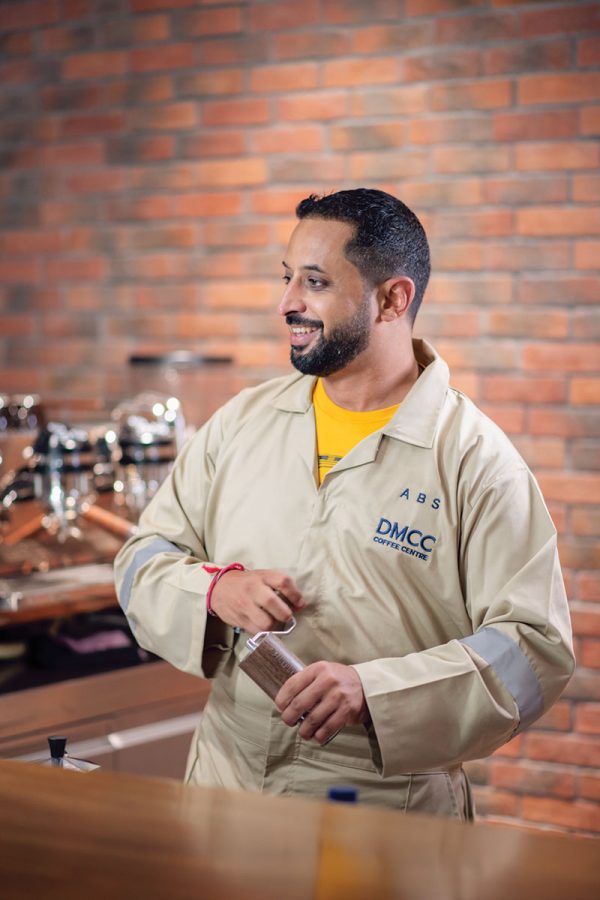
“Our ambitious plans to triple capacity in the near future are strategically anchored in Dubai’s drive and ability to facilitate world trade. Situated at the crossroads of the world, Dubai is perfectly placed to grow its market share for commodity trading, and the import and export of coffee, tea and a whole range of other commodities. To support this ambition, DMCC has developed a solid eco-system of infrastructure and best-in-class services that, together, will encourage more businesses to base their operations at DMCC,” says Bin Sulayem.
DMCC’s efforts are focused on promoting the commercial appeal of Dubai to leading global businesses and small and medium-sized enterprises around the world. By driving commodity trade through Dubai, Bin Sulayem says DMCC is also positively impacting vital sectors of the city’s economy including logistics, cargo volumes and aviation. As a result, it is supporting the government’s economic diversification plans while simultaneously contributing 10 per cent to Dubai’s gross domestic product.
“Our growth is not overnight. We weren’t on anyone’s radar in 2003. We moved DMCC to its current location in Jumeirah Lakes Towers (JLT) in 2008 and continue to expand,” Bin Sulayem says. “At the time, 60 per cent of the world’s teas were getting re-exported via Dubai. Knowing that we are the largest re-exporter of teas and that 80 per cent of the countries that produce tea also produce coffee, told me that I’d be mad not to explore coffee as an opportunity.”
And it’s paid off. In the past 12 months the DMCC Coffee Centre has handled 8000 metric tonnes of green coffee and roasted almost three million cups of coffee, with some of the industry’s largest roasters using the facility to leverage opportunities in the Middle East.
“Demand is there. We’re working with business start-ups and large roasters, each with different needs. We were strategic in making sure the DMCC Coffee Centre is unbiased. It is a place that serves everyone. We want people to know we’re here and that what we produce is a quality product,” Bin Sulayem says. “I do believe companies will start chasing us to roast their beans because they want our DMCC stamp.”
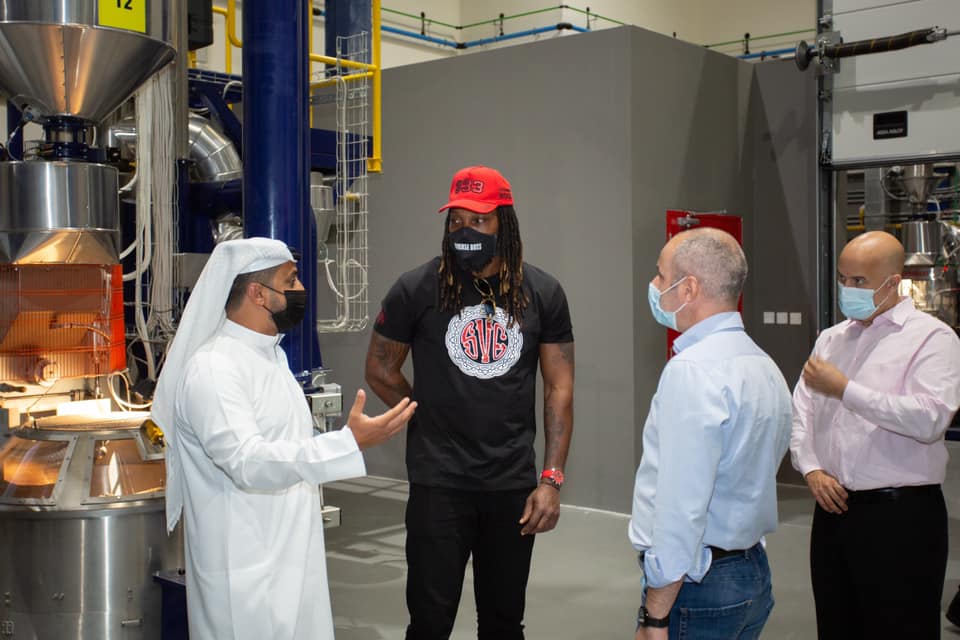
What that is exactly, Bin Sulayem says, is the chance to access one of the “best facilities in the world” as a gateway to a global audience.
“Our business must be focused on the international market and meeting their needs. If South Africa, Angola, and other African countries send us their green beans to have them processed, roasted, blended, packaged, and redistributed from Dubai, for example, it will cost a whole lot less compared to doing it inland. That’s the reality right now. It makes business sense. If that changes in the future and it becomes comparative, fine. But for now, we can serve a need. We’re not striving to be better than anyone. I just want to show the industry what Dubai’s capabilities are,” Bin Sulayem says.
“There’s a lot of opportunities we need to take advantage of. The thing that frightens me is lost opportunities. Competition breeds quality, and sure, there are some people who may not be ready to think about setting up in Dubai now, but when they are, we’ll be ready. They can try us out for one month, two months, it doesn’t matter. What does is that they experience our coffee club, come and play, and learn that we represent quality and a product that tells a story.”
From crisis comes opportunity
In April 2020, Dubai went into COVID-19 lockdown with many offices and factories experiencing an oversupply of green and roasted coffee with no means of storage.
“Nobody planned for COVID. Many businesses were stuck with huge coffee supplies and had more lines of committed coffee coming in. As a result, we saw an increase in businesses using our facilities, so sometimes crisis does bring opportunity,” Bin Sulayem says.
Despite an overall softer business climate, more than 1750 companies, to date, joined DMCC in 2020, with a noticeable uptake in May and June.
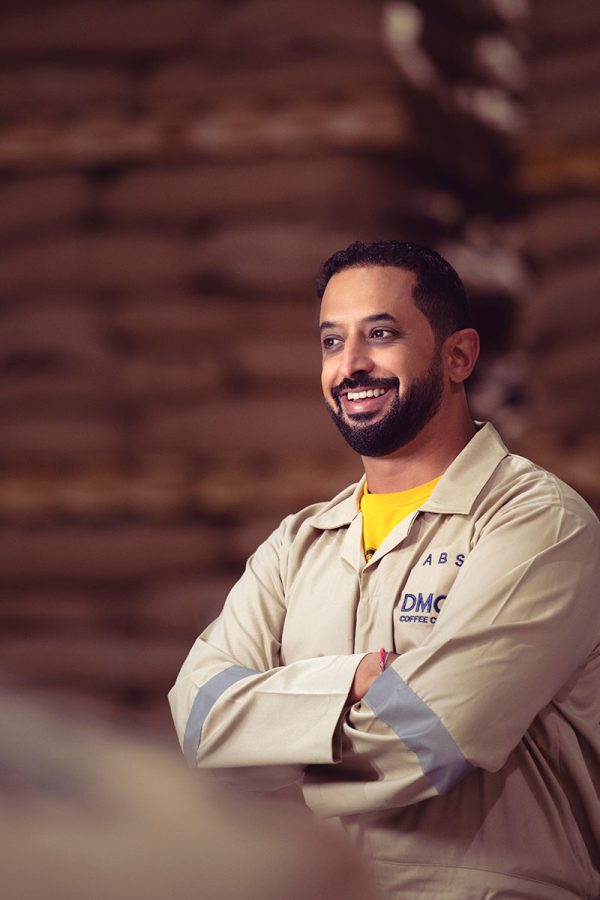
“I am in no way satisfied with where we are. There is so much we can still do, and I think that attitude is what got us to 18,000 members – we don’t sit on our laurels, we look at different ways of adding value to attract more business,” Bin Sulayem says.
Bin Sulayem describes himself as a government official, and “half a coffee expert”. He says it will take him years to understand the many producing regions and coffee varietals, but he enjoys exploring different origins.
In 2017, Bin Sulayem was in Costa Rica with the Dubai Chamber of Commerce to visit its port and free zone. Instead, on arrival, he met with local farmers. At origin, he explained his concept for the DMCC Coffee Centre via translator, and when he finished, was handed business cards from every direction.
“I was overwhelmed. I thought, ‘I have a responsibility to these producers, and I hope we can live up to their expectations.’ Then the Coffee Centre became a reality and today we work with a lot of Costa Rican farmers,” he says.
The DMCC Coffee Centre has enabled the trade of more than 100 coffee varieties from major growing regions such as Central and South America, but Bin Sulayem admits strong interest in Brazil, Vietnam, Rwanda, Kenya, and the reviving coffee regions of Angola.
“I’m fully aware of the impending challenges ahead for the coffee industry – climate change, price crisis – but underneath is a commitment to the farming community. We’re not here to educate the world, but we are here to support the farmers. If it’s not via DMCC, then I’m going to commit to a personal initiative to give back,” he says.
For the past 19 years, Bin Sulayem has spearheaded one of the world’s biggest free zones, managing DMCC’s various industries, including gold, diamonds and precious metals. He helped DMCC become the first Arab country to join the Kimberly Process Certification Scheme in 2003 to reduce the flow of conflict diamonds. He launched the world’s largest diamond trading floor and opened the DMCC Tea Centre in 2005 to boost global tea trade through the Emirate. But now, 70 per cent of Bin Sulayem’s time is dedicated to coffee.
“It’s likely to stay that way until the Coffee Centre has matured and has good consistency. The truth is, coffee is a fun social commodity and I’m still learning. The industry and preferences change,” he says.
Bin Sulayem describes Dubai’s coffee culture as a mixture of Arab traditions, Western coffee chains, and advancing specialty coffee shops, with the like of Tres Marias Coffee in the Jebel Ali Free Zone and Common Grounds at Almas Tower.
“Dubai has a big coffee community that’s truly on the world map. We know that coffee connects cultures and brings people together. The next step for our success is continuing to build relationships with customers who share the vision for what DMCC is doing today, and what we’re doing tomorrow,” he says.
Already, Bin Sulayem has hosted sporting royalty at the DMCC Coffee Centre, including Jamaican cricketer Chris Gayle and basketballers including Donnie Nelson, General Manager of the Dallas Mavericks of the National Basketball Association, and the late Kobe Bryant. But it was the visit of His Highness, Sheikh Mohammed bin Rashid Al Maktoum, Vice President and Prime Minister of the United Arab Emirates and Ruler of Dubai, to the DMCC Coffee Centre in June 2020, that was a turning point for the Coffee Centre.
“There had never been an official visit to DMCC or the JLT community, which represents 100,000 people, but His Highness went straight to the DMCC Coffee Centre and fell in love. He was impressed by our efficiency and use of hybrid Brambati roasters that roast six tonnes of green beans an hour,” Bin Sulayem recalls. “After his Highness’s visit, it was clear the Dubai government the Jebel Ali free zone are doing everything they can to make us a success.”
But the ultimate sign comes down to DMCC’s members and addressing their needs.
“We listen to the commodity market and foresee the opportunities and challenges our members are facing,” Bin Sulayem says.
“Next year, I think we’ll see the merger of coffee and cocoa in blends. I think we’ll start to see more demand for access to cold brew bottling equipment, which is something we’re looking into, and we’ll see AI technology become more integrated into businesses. I don’t think we should be scared of it. It will only provide us with more opportunities, but ultimately, we just need to make better coffee, because when we do, people will come.”
